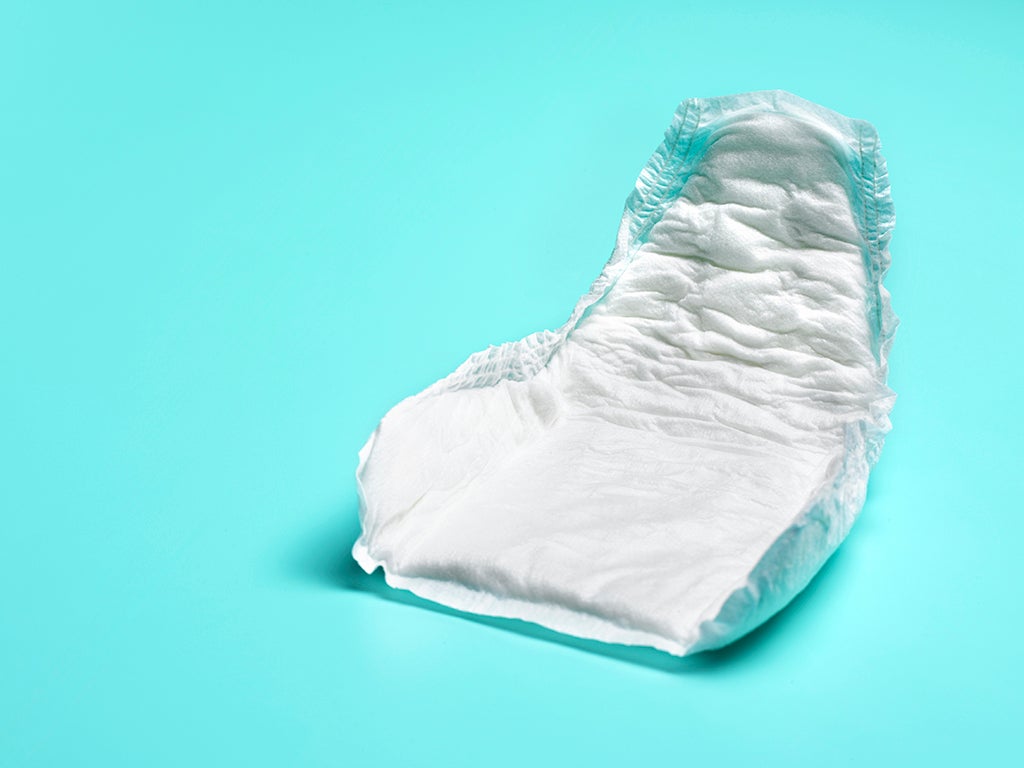The Independent's journalism is supported by our readers. When you purchase through links on our site, we may earn commission.
Incontinence is incredibly common, but not a symptom to be ignored
Involuntary leakage of urine or stool is often poorly addressed and managed, despite the impact on self-esteem and quality of life. But “urgency” cards can be provided, which are a less embarrassing way of signaling you need to use facilities if out and about

Your support helps us to tell the story
From reproductive rights to climate change to Big Tech, The Independent is on the ground when the story is developing. Whether it's investigating the financials of Elon Musk's pro-Trump PAC or producing our latest documentary, 'The A Word', which shines a light on the American women fighting for reproductive rights, we know how important it is to parse out the facts from the messaging.
At such a critical moment in US history, we need reporters on the ground. Your donation allows us to keep sending journalists to speak to both sides of the story.
The Independent is trusted by Americans across the entire political spectrum. And unlike many other quality news outlets, we choose not to lock Americans out of our reporting and analysis with paywalls. We believe quality journalism should be available to everyone, paid for by those who can afford it.
Your support makes all the difference.Despite the potentially debilitating impact and embarrassment of living with incontinence, those people who do can at least take heart that they are not alone and that help is available.
Whilst incontinence is a condition that people are understandably uncomfortable talking about, it is in fact incredibly common, with an estimated 400 million people affected around the world.
The International Continence Society (ICS) describes incontinence as the unwanted and involuntary leakage of urine or stool.
These conditions are too often poorly addressed and subsequently inadequately managed, despite the substantial impact on individual health, self-esteem and quality of life.
World Continence Week, an annual event organised by the ICS and running this year from June 22 to June 28, is a way of addressing that.
Urinary incontinence
The two most common types of urinary incontinence are referred to as “stress” or “urge” incontinence. In reality, many patients suffer with a mixed picture of both stress and urge incontinence.
Stress incontinence occurs when the pressure inside the bladder, as it fills with urine, is greater than the strength of the urethra to remain closed. This can lead to urine being released involuntarily when additional pressure is created, for example due to sneezing or laughing.
This can be a result of childbirth, weight issues, surgical damage during hysterectomy or prostate operations, and neurological conditions including multiple sclerosis or Parkinson’s disease.
Pelvic floor exercises are so often overlooked but can have a significant impact on stress incontinence. Maintaining pelvic floor tone in women can also help prevent genital prolapse later in life.
Urge incontinence is a result of the detrusor muscles within the walls of the bladder contracting too often. Causes can include consuming large quantities of alcohol or caffeine, some medications, poor fluid intake, neurological conditions and constipation.
A blockage in the bladder, perhaps due to an enlarged prostate in men, bladder stones and constipation, can also lead to overflow incontinence.
People who experience total incontinence often have a problem from birth or experience symptoms after spinal damage.
Bowel Incontinence
Bowel incontinence is normally a symptom of an underlying problem. It can be related to constipation, diarrhoea, inflammatory bowel conditions, haemorrhoids, muscle or nerve damage within the bowel due to stroke, diabetes or multiple sclerosis.
Bowel incontinence can be a sign of more serious medical issues and should never be ignored.
Seek help
Whilst incontinence is incredibly common, it is not a symptom to be ignored. New or sudden onset of either bladder or bowel incontinence could indicate infection. Whilst sudden loss of bladder/bowel function, particularly in the presence of back pain, is a medical emergency until proven otherwise. It can indicate that the spinal cord has been ‘pinched’.
There are many treatment options that we can consider, and not all involve taking medication. Patients can be referred to specialists, including specialist nurses and physiotherapists who specialise in pelvic floor work. Supervised pelvic floor exercises or bladder and bowel training can improve symptoms and quality of life. Whilst some patients find their symptoms can even be effectively treated with Botox administered to the bladder.
It can be embarrassing to discuss incontinence with your GP. Patients also often worry about the examinations or tests that might be needed. Your GP can guide you through this process. As there are so many treatment options now available, it is absolutely worth discussing with them.
The bottom line is that no-one need suffer in silence.
Dr Alexandra Phelan is a practicing community GP and member of the Pharmacy2u.co.uk Online Doctor Service team.
Running from Monday, June 22 to June 28, World Continence Week 2015 is an International Continence Society initiative aimed at raising awareness of incontinence.
To find the local continence service, telephone the Bladder and Bowel Community on 01926 357220. They can also provide “urgency” cards that can be a less embarrassing way of signaling you need to use facilities if out and about.
Join our commenting forum
Join thought-provoking conversations, follow other Independent readers and see their replies
0Comments